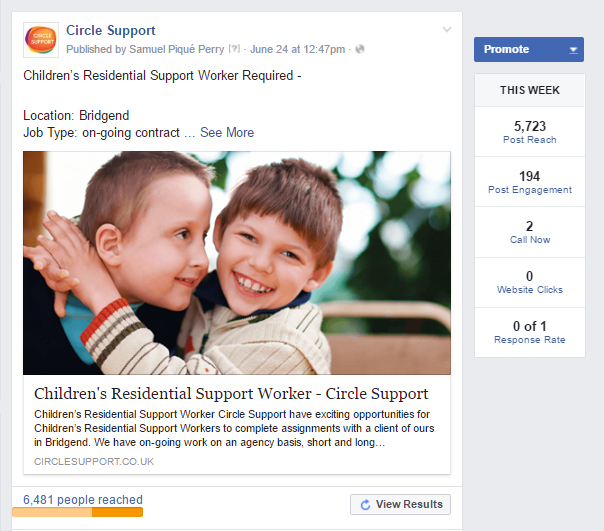social media advertising
Advertising your small business is stressful – with so many choices and, usually, so little budget how do you choose which channels to use and where to spend your money? It is important to find the answers, as knowing how to promote your small business in the best possible way sets you on the path to growing your market and expanding your reach. Reaching the right audience, in the right way, at the right time is the key to successful marketing, and it is different for every business, but there are some general things that can help.
Here are 4 free and 3 paid ways to advertise your small business in a crowded market.
Free Marketing Ideas for Small Businesses
Social Media Marketing
LinkedIn, Facebook, Instagram, Twitter, Pinterest, YouTube, TikTok – the list of social media platforms goes on, with Wikipedia estimating that there are over 130 different ones to choose from now! The key to using social media to advertise your small business is choosing the platform that your customers are using most, and then updating your page regularly. The only cost to a successful social media marketing campaign is your time investment.
Email Marketing
If you have a list of customer (or potential customer) email addresses, using them wisely is a great way to market your small business. Send out helpful articles, sales messages, and rewards to those who sign up and you will create a faithful following that will convert as well as your social media audience, or even better!
Website Marketing
Don’t overlook your website. If you are doing all this work to drive people to your website, you need to make sure it converts them into leads. Make the most of your data and analytics to ensure that it is working as hard as you are. Search Engine Optimisation is another great way to make your website do more for your business. By optimising your website to be found in the search engines you can increase the number of visitors, and with no direct costs, your only investment is time and energy.
Content marketing
Another fantastic way to market your business is by creating valuable content. This could be blog posts, videos, and even podcasts. It is a great way to express your brand’s personality and help you to find new customers. It can also support your social media and SEO work, so it’s a great option to use in combination with the other free marketing ideas we’ve suggested above.
Paid Marketing Ideas for Small Businesses
Paid Advertising on Search Engines
PPC (Pay-Per-Click) marketing is a really effective way to market your business as it allows you to send your message to a highly targeted audience and set a tight budget. Google Ads and Bing Ads are the most common, and each gives you a chance to test multiple adverts and campaigns to see which performs best for your goals.
Social Media Advertising
Instead of relying on organic growth in your social media profiles and pages, you can create very visual social media adverts and display them to a highly targeted audience. As well as giving you the opportunity to reach a wide number of people for a small budget, the advertising options on these channels give you access to a huge range of in-depth data which can help you to make future advertising decisions.
Remarketing Campaigns
If you already have a bank of customer data or have run successful paid campaigns in the past, then remarketing is a great option. Remarketing is usually a cheaper option than other paid marketing options, and has a higher conversion rate.
Whatever your budget, whatever time you have to invest, there is a marketing solution for your small business. Take your time, make a plan and good luck!
If you’d like to speak to one of our team about how we could help you attract new customers with catchy and clever advertising tactics, you can get in touch here. Alternatively, pick up the phone and call us on 01600 891525 – we’d love to hear from you!
With students graduating this summer, we’ve been giving careful thought to the essential skills Marketing Companies look for when recruiting graduates. And we all agreed that it comes down to a combination of academic ability, soft skills and sheer determination!
‘Academic Ability’
It’s not just about getting a First or 2:1 – employers are going to be looking for evidence of your ability to problem solve, understand complex information, work as part of a team, multitask and work to deadlines. Phew, that’s a long list and you thought it was just about writing essays. Make sure you show how you’ve developed these skills whilst studying or gaining work experience.
Working in Marketing is often all ‘hands on deck’ so having good IT skills is also important. Knowledge of packages such as Photoshop will enable you to create an image for a post quickly. Equally, understanding basic HTML / CSS so that you can make a quick amend on a website will also help your cause.
‘Soft Skills’
This is an industry all about communication so great skills in this area are a must. Marketing involves a lot of writing; blog posts, press releases and pitches, so good writing, spelling and grammar skills (please, no mistakes on your CV!) are critical. Interpersonal skills are also key. You’ll be working with a team so evidence of work experience, or involvement in events or committees all help to show you have a good grounding in this area.
You will also need to show that you can think creatively. You don’t need to be an artist, just show you can ‘think outside the box’. For a start, don’t just send in yet another standard CV – be creative to stand out. Different paper textures, infographics, layouts – be distinctive. Can you show how you took a different approach to solve a problem?
Sheer Determination
It goes without saying that an interest in people and an awareness of the world around you is vital, Marketing, after all, is all about understanding people’s aspirations and challenges to foster relationships. Be aware of what’s going on in the news and read widely.
As a new Graduate, nobody is expecting you to have loads of specific company experience but you can demonstrate your skills by marketing yourself.
- Get involved with the marketing of a College Club or local event.
- Show you can write by having your own blog or contributing to a magazine.
- Be visible on social media – show your understanding of the essentials of social media but carefully consider what you post and choose to share as more and more employers will check these channels.
You’ve got yourself an interview? Congratulations! Make sure you’re prepared. Do your research on the company and the marketplace they work in. Read trade publications, press releases and immerse yourself in Google Search! What about marketing campaigns that have caught you eye, why was that? What’s memorable and what was a real stinker – again why? This shows prospective employers that not only do you have a commercial awareness but also are happy to create your own opinions.
Additional Study
Another option is to keep studying! A professional Marketing qualification or a postgraduate course will certainly add to your academic portfolio. Ideally though, it is worth getting some experience with the different aspects of marketing before taking the plunge. Many in the marketing industry will take these courses whilst working to further their promotion prospects.
The Chartered Institute of Marketing (CIM) offers an Introductory Certificate in Marketing. This can be followed at a later stage by other qualifications leading to chartered status.
The Institute of Data and Marketing (IDM) also offers a variety of qualifications for both graduates and industry professionals ranging from masters and postgraduate degrees to professional diplomas.
You can also find affordable online marketing courses on sites such as The Digital Marketing Institute, Hubspot, Coursera, and Copyblogger.
All we can say is good luck! It’s a great industry to work in!
What do you need to know about boosting posts?
Many companies use Facebook as a tool to engage with their target market and to drive traffic to their websites.
Before 2014 Facebook was the best platform to reach as many people as possible with the minimum amount of effort. Great! Times were easy, engagement was high.
But in 2015 Facebook reduced its efficiency, drastically! The reason was simple, developers realised that reducing the efficiency of Facebooks reach would encourage more people to pay for boosted posts.
Great for Facebook, not so great for the rest of us who were left scrabbling for a new social media budget.
Fast forward to today and, whilst Facebook may no longer be as easy to promote from as it once was, its boosted post option is still one of the cheapest and most effective ways to reach its one billion members.
Example:
The account below is an excellent example of the effectiveness of post boosting.
By targeting this post directly to their customers and providing content which is both useful, attractive and linked to their site this recruitment company were able to increase reach from an average of 250 to nearly 6,500. This boost also resulted in a peak in website visitors and therefore improved applications to this job.
What should I boost?
Boosted posting is something which requires your direct attention, not simply because you want to make sure you are reaching the right people in the right way, but also because a mistake can really take a bite out of your pocket.
There are really only two types of post which warrant boosting with your cash, content which is rich in useful information, such as blogs or jobs, and existing posts which already have great engagement.
Boosting allows marketers to target specific customers by geography, employment sector and interests ensuring that your post appeals directly to your exact customer base.
When should I boost?
As with all aspects of social media timing is not only key but also completely subjective.
Go back through older posts and search for a correlation between the time of the post and the level of engagement.
Put yourself in the shoes of your target client, if they are teachers they may be more likely to be using Facebook during lunchtimes or evenings, whereas office workers are likely to have access to social media all day and start to surf later in the working day from 4pm onwards.
Be logical and gather data before you jump in.
Post boosting is certainly an advantageous way to target your customers and builds on Facebooks already beneficial structure to reach as many people as possible.
Key Points:
– Posts are eyecatching
– Posts link to a website
– Posts contain useful information or rich data such as video or imagery.
– Boosts are targeted effectively using the boost building tool
– Boost at a time which relates to your target market


